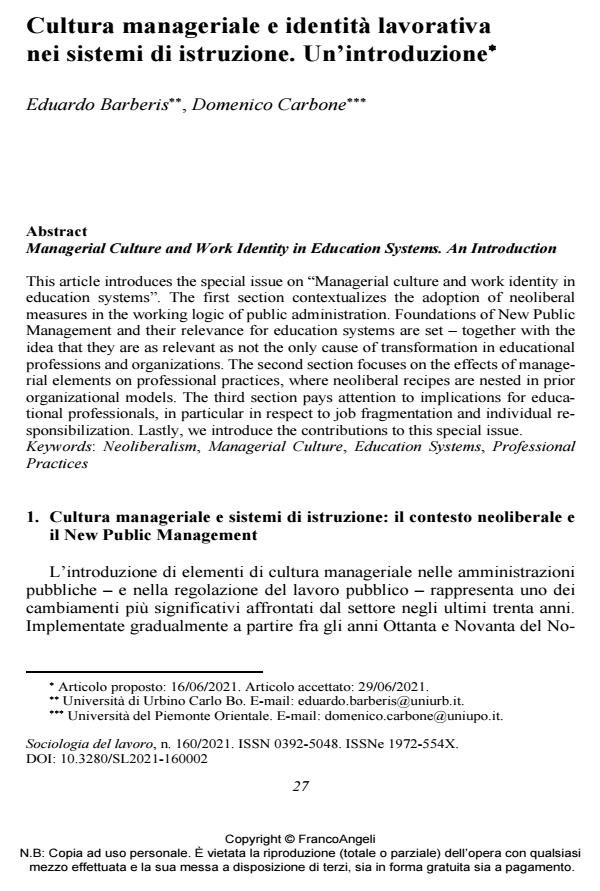Managerial Culture and Work Identity in Education Systems. An Introduction
Journal title SOCIOLOGIA DEL LAVORO
Author/s Eduardo Barberis, Domenico Carbone
Publishing Year 2021 Issue 2021/160
Language Italian Pages 16 P. 27-42 File size 221 KB
DOI 10.3280/SL2021-160002
DOI is like a bar code for intellectual property: to have more infomation
click here
Below, you can see the article first page
If you want to buy this article in PDF format, you can do it, following the instructions to buy download credits

FrancoAngeli is member of Publishers International Linking Association, Inc (PILA), a not-for-profit association which run the CrossRef service enabling links to and from online scholarly content.
This article introduces the special issue on "Managerial culture and work identity in education systems". The first section contextualizes the adoption of neoliberal measures in the working logic of public administration. Foundations of New Public Management and their relevance for education systems are set - together with the idea that they are as relevant as not the only cause of transformation in educa-tional professions and organizations. The second section focuses on the effects of managerial elements on professional practices, where neoliberal recipes are nested in prior organizational models. The third section pays attention to implications for educational professionals, in particular in respect to job fragmentation and indi-vidual responsibilization. Lastly, we introduce the contributions to this special issue.
Keywords: Neoliberalism, Managerial Culture, Education Systems, Professional Practices
Eduardo Barberis, Domenico Carbone, Cultura manageriale e identità lavorativa nei sistemi di istruzione. Un’introduzione in "SOCIOLOGIA DEL LAVORO " 160/2021, pp 27-42, DOI: 10.3280/SL2021-160002